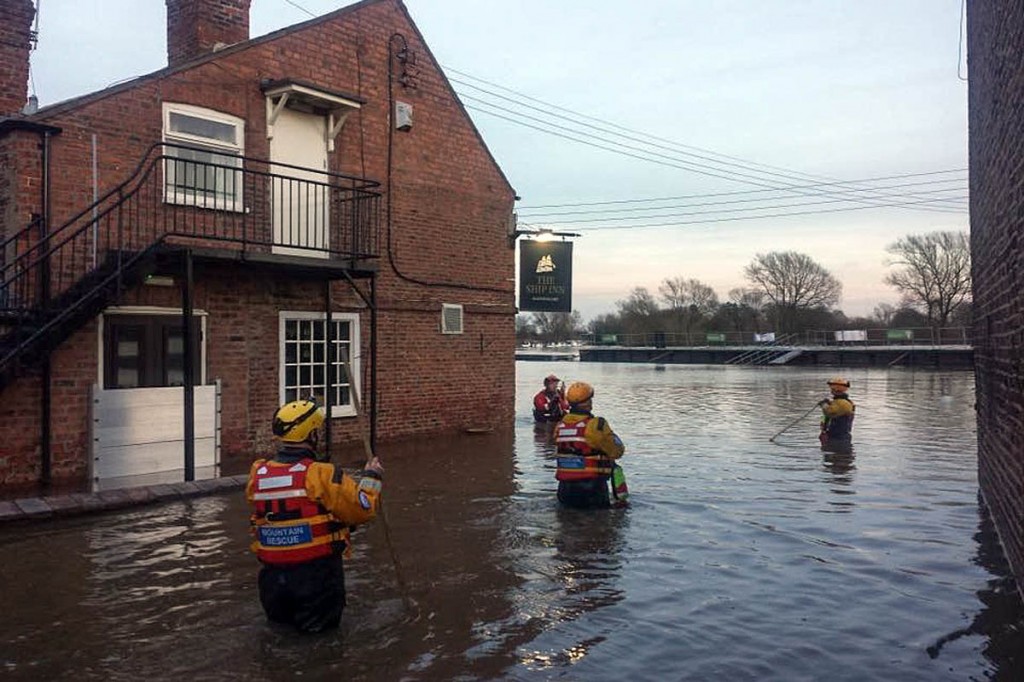
Ashburton team members in action in the 2015 York floods. Photo: Dartmoor Search and Rescue Ashburton
Mountain and search and rescue teams will receive more than a quarter of a million pounds from the Westminster Government to help them carry out water rescues.
The grant is part of a handout totalling almost a million pounds to voluntary charities that undertake rescues during flooding and other water incidents.
Twenty-two mountain and lowland search and rescue teams, from Cumbria to Cornwall, will receive a share of the handout. Other bodies such as rescue boats, lifeboats and lifeguard organisations are among the recipients, including organisations in Scotland, Wales, and Northern Ireland.
It is the third round of funding provided under a five-year, £5m scheme, announced as part of the 2014 budget statement.
The Government said the money can be used to buy new lifeboats and other equipment such as lifejackets and safety gear.
Amounts given to rescue teams range from £2,700 for Exmoor Search and Rescue Team to £25,851 to Surrey Search and Rescue. Mountain and lowland rescue teams will receive a total of £279,498.
An expert panel, including representatives from devolved administrations; Department for Environment, Food and Rural Affairs; Maritime and Coastguard Agency; Royal National Lifeboat Institution, and the Royal Yachting Association, assessed applications submitted to the Department for Transport on the basis of: how the equipment or training will be used to support lifesaving, search and rescue operations and flood response capability locally and nationally; whether the funding will deliver wider community benefits, and how the equipment and skills will bring sustainable benefits.
Maritime minister John Hayes said: “Every day countless volunteers in water rescue charities across our island nation carry out vital work during emergencies, not only around our coasts but also keeping our rivers, lakes and inshore waters safe.
“It is imperative that we value and support their tireless efforts. I am delighted to be able to announce the latest round of funding, ensuring they have the equipment and resources they need to provide their round-the-clock lifesaving services.”